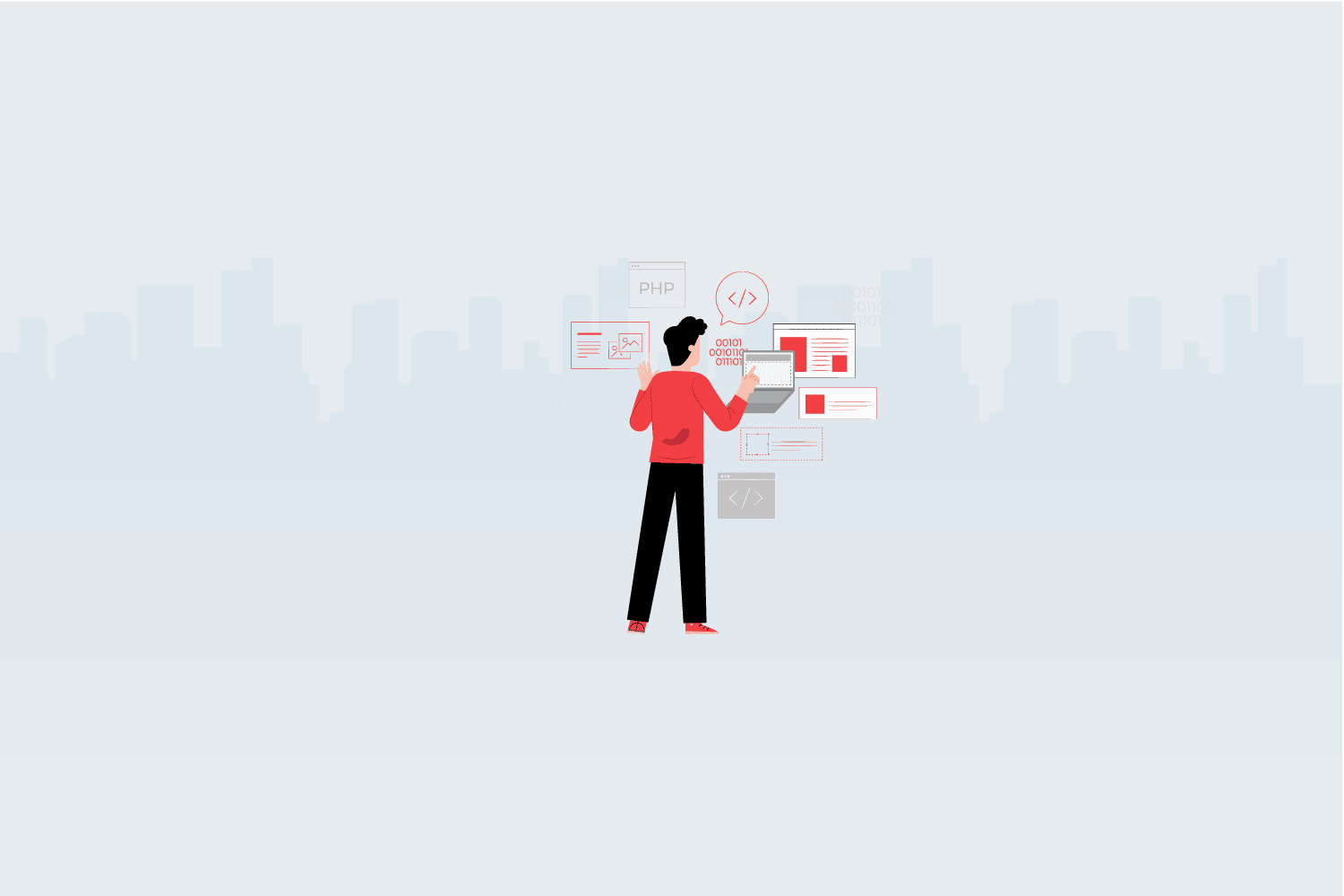Recruiters continually seek innovative solutions to streamline processes, enhance efficiency, and identify top-notch candidates. As technology evolves, Artificial Intelligence (AI) has emerged as a transformative force in the realm of recruitment, promising to reshape traditional practices.
According to a study by Deloitte, organizations leveraging AI in recruitment experience a 40% reduction in time-to-fill positions, highlighting the significant efficiency gains AI brings to the talent acquisition process.
This blog explores the important question: Are AI-powered recruitment assessment tools the future of talent acquisition? Delving into the intricacies of AI in recruitment, we aim to provide recruiters with insights into the benefits, challenges, and potential of leveraging AI to redefine the way talent is acquired.
Understanding AI in recruitment
AI in recruitment refers to the use of advanced technologies, such as machine learning, natural language processing, and data analytics, to automate and optimize various stages of the hiring process. These tools can handle tasks ranging from resume screening and candidate sourcing to interview scheduling and predictive analytics. The goal is to empower recruiters with data-driven insights and automate repetitive tasks, allowing them to focus on strategic decision-making and building meaningful connections with candidates.
The benefits of AI-powered recruitment assessment tools
The integration of AI-powered recruitment assessment tools brings a multitude of advantages. From streamlining processes and enhancing efficiency to fostering diversity and improving the candidate experience, these tools are revolutionizing how recruiters identify and acquire top talent.
Efficiency and time savings
AI streamlines the recruitment process by automating time-consuming tasks like resume screening, which enables recruiters to focus on high-value activities such as relationship-building and strategic decision-making. This not only accelerates the hiring process but also improves the overall efficiency of the recruitment workflow.
Enhanced candidate matching
AI-driven tools use sophisticated algorithms to analyze candidate profiles and compare them against job requirements. This ensures more accurate and efficient candidate matching, increasing the likelihood of finding the best-fit candidates for open positions. The result is a more targeted and streamlined hiring process.
Reduced bias in hiring
One of the significant challenges in traditional recruitment is unconscious bias. AI, being data-driven and objective, can help mitigate bias in various stages of the hiring process, from resume screening to interview evaluations. This promotes diversity and inclusion within the workforce.
Predictive analytics for strategic planning
AI tools can analyze historical hiring data to identify patterns and trends, enabling recruiters to make informed decisions about future hiring needs. Predictive analytics empower recruiters with insights into market trends, skill shortages, and other factors that impact talent acquisition strategies.
Improved candidate experience
AI-powered chatbots and virtual assistants can provide real-time responses to candidate queries, schedule interviews, and keep candidates informed about the status of their applications. This contributes to a positive candidate experience, strengthening the employer brand.
Challenges and considerations
While the benefits of AI-powered recruitment assessment tools are evident, it is crucial for recruiters to be aware of potential challenges and considerations:
Algorithmic bias
AI systems are only as unbiased as the data they are trained on. If historical data used to train AI models contain biases, the algorithms may perpetuate and even exacerbate existing biases in the recruitment process. Recruiters must actively monitor and address algorithmic bias to ensure fair and inclusive hiring practices.
Loss of human touch
While automation can significantly improve efficiency, there is a concern that too much reliance on AI may lead to a loss of the human touch in recruitment. Building relationships, understanding candidates’ motivations, and assessing cultural fit are aspects of the hiring process where human intuition and judgment play a crucial role.
Data privacy and security
The use of AI in recruitment involves handling vast amounts of sensitive candidate data. Recruiters must prioritize data privacy and implement robust security measures to protect candidate information from unauthorized access and breaches.
Cost of implementation
Implementing AI-powered recruitment assessment tools may require a significant initial investment. Recruiters should carefully assess the cost-benefit ratio and consider the long-term advantages of improved efficiency and strategic decision-making.
Continuous learning and adaptation
AI technologies are rapidly evolving, and recruiters must commit to continuous learning to stay abreast of the latest developments. Adapting to new tools and technologies ensures that recruiters can harness the full potential of AI in talent acquisition.
The evolution of AI in recruitment
The integration of AI in recruitment is an evolutionary process, with continuous advancements shaping the future of talent acquisition. Several key trends highlight the ongoing transformation of AI-powered recruitment assessment tools:
Natural Language Processing (NLP): NLP enables machines to understand, interpret, and generate human-like language. In recruitment, NLP is applied to automate resume parsing, analyze candidate communications, and improve the effectiveness of chatbots in handling candidate queries.
Chatbots and virtual assistants: AI-driven chatbots and virtual assistants have become integral parts of the candidate experience. These tools can engage with candidates, answer queries, and assist in the application process, enhancing communication and responsiveness.
Video interviewing and analysis: AI is revolutionizing the way interviews are conducted and evaluated. Video interviewing platforms equipped with AI can analyze facial expressions, voice tone, and language patterns to provide insights into a candidate’s soft skills and cultural fit.
Blockchain in recruitment: Blockchain technology is gaining traction in recruitment to address issues related to candidate verification, credential authentication, and data security. By providing a decentralized and tamper-resistant platform, blockchain enhances the reliability of candidate information.
Augmented Reality (AR) in recruitment events: AR is being utilized to create immersive and interactive experiences in recruitment events and job fairs. Recruiters can showcase company culture, job roles, and career opportunities in a virtual environment, attracting and engaging potential candidates.
Case studies: Real-world impact of AI in recruitment
Delving into real-world scenarios, case studies offer a tangible glimpse into the transformative impact of AI in recruitment. Examining success stories from industry leaders like IBM Watson, Unilever, and LinkedIn, these cases illuminate the practical applications and measurable benefits that AI-powered tools bring to the recruitment landscape.
IBM Watson recruitment
IBM Watson recruitment leverages AI to transform the hiring process. By analyzing historical data, Watson Recruitment helps recruiters identify skills gaps, predict candidate success, and enhance the overall quality of hires. The system continually learns and adapts to evolving recruitment trends.
Unilever’s implementation of AI for diversity and inclusion
Unilever has embraced AI to address diversity and inclusion challenges. By using AI tools to anonymize resumes during the initial screening process, Unilever aims to reduce unconscious bias and ensure that candidates are evaluated based on their skills and qualifications.
LinkedIn talent solutions
LinkedIn‘s suite of AI-powered tools, including LinkedIn Recruiter and LinkedIn Talent Insights, assists recruiters in sourcing candidates, identifying talent pools, and making data-driven decisions. These tools leverage AI to match candidates with job requirements and provide insights into the competitive talent landscape.
Future considerations and recommendations for recruiters
As AI continues to evolve in the realm of recruitment, there are several considerations and recommendations for recruiters looking to leverage these technologies effectively:
Strategic integration: Recruiters should strategically integrate AI-powered tools into their existing recruitment processes, considering the specific needs and goals of their organizations. A phased approach allows for a smooth transition and ensures that AI complements, rather than replaces, human expertise.
Ethical AI practices: Prioritize ethical AI practices to ensure fairness, transparency, and accountability in the recruitment process. Regularly audit AI algorithms for bias, actively address any issues, and communicate transparently with candidates about the use of AI in the hiring process.
Continuous training and development: Stay abreast of the latest developments in AI and continuously invest in training and development for recruiters. Building a culture of learning ensures that recruitment teams can effectively harness the capabilities of AI and adapt to emerging technologies.
Collaboration between human and AI: Emphasize the collaborative nature of human-AI partnerships in recruitment. AI is a tool to augment human capabilities, not replace them. Encourage recruiters to focus on high-value tasks that require emotional intelligence, creativity, and relationship-building.
Data security and compliance: Prioritize data security and compliance with privacy regulations such as GDPR. Implement robust cybersecurity measures, educate recruitment teams on data protection practices, and regularly update protocols to align with evolving regulatory requirements.
Conclusion
AI-powered recruitment assessment tools are undeniably shaping the future of talent acquisition. From enhancing efficiency and reducing bias to providing valuable insights for strategic planning, the benefits of AI in recruitment are multifaceted. Recruiters play a pivotal role in navigating the evolving landscape, embracing technology while upholding ethical practices and the human touch in hiring.
As the integration of AI in recruitment continues to evolve, recruiters must stay agile, continuously adapt to emerging technologies, and foster a collaborative approach that leverages the strengths of both AI and human expertise. By doing so, recruiters can unlock the full potential of AI-powered recruitment assessment tools, ushering in a new era of efficiency, inclusivity, and strategic talent acquisition.
Elevate your recruitment strategy with Testlify, a cutting-edge talent assessment tool. Unleash the power of data-driven insights and streamline your hiring process. Transform the way you identify top talent. Sign up for free for a smarter approach to talent acquisition.








